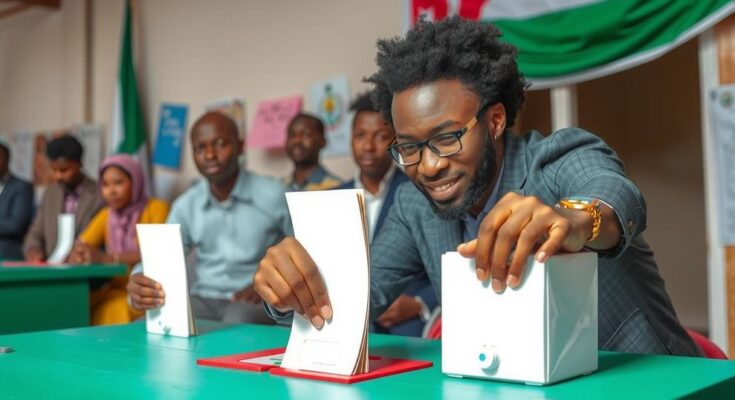Comoros conducted a parliamentary election marked by opposition boycotts, with leaders alleging authoritarian practices by President Azali Assoumani. Approximately 330,000 voters were registered, but low turnout is expected due to public disillusionment. Past elections have been criticized as fraudulent, particularly the 2020 election, which opposition parties described as a “masquerade.” The political history of Comoros reveals systemic upheaval and governance issues under Assoumani’s leadership.
On Sunday, Comoros conducted a parliamentary election that faced a boycott from several opposition parties, who have raised alarms regarding the increasingly authoritarian behavior of President Azali Assoumani and his political faction. This election is pivotal as it will determine the composition of 33 legislative seats, with official results anticipated in the following week. According to the national electoral commission, approximately 330,000 voters are registered among an 850,000-strong population, although opposition factions predict a markedly low voter turnout stemming from widespread disillusionment with the electoral process. Notably, Assoumani’s party previously secured 20 of the 24 contested seats in 2020 and he cast his ballot in Mitsoudjé. Opposition groups have criticized past elections as fraudulent, with particular disdain for the 2020 vote, deemed a “masquerade.” The opposition’s boycott included the Juwa Party, led by former President Ahmed Abdallah Sambi, indicative of their overall sentiment towards the electoral integrity under Assoumani’s administration.
Comoros is an archipelago situated in the Indian Ocean off the eastern coast of Africa, historically plagued by military coups since gaining independence from France in 1975. President Azali Assoumani, a former military officer, has experienced a contentious political career, initially seizing power in 1999. His presidency has evolved through numerous elections, with constitutional amendments in 2018 allowing him to circumvent term limits, thereby facilitating his prolonged rule. The political environment in Comoros has been characterized by allegations of repressive governance and electoral malfeasance, contributing to a climate of skepticism among opposition parties and the population at large.
The recent parliamentary election in Comoros exemplifies ongoing political turmoil, underscored by opposition boycotts and claims of authoritarian governance under President Assoumani. With results forthcoming, the anticipated low voter turnout and the opposition’s historical criticism of electoral processes pose significant challenges to the legitimacy of the current administration. The political landscape continues to be affected by Assoumani’s controversial practices, implicating broader implications for the preservation of democracy in the archipelago.
Original Source: www.wral.com




